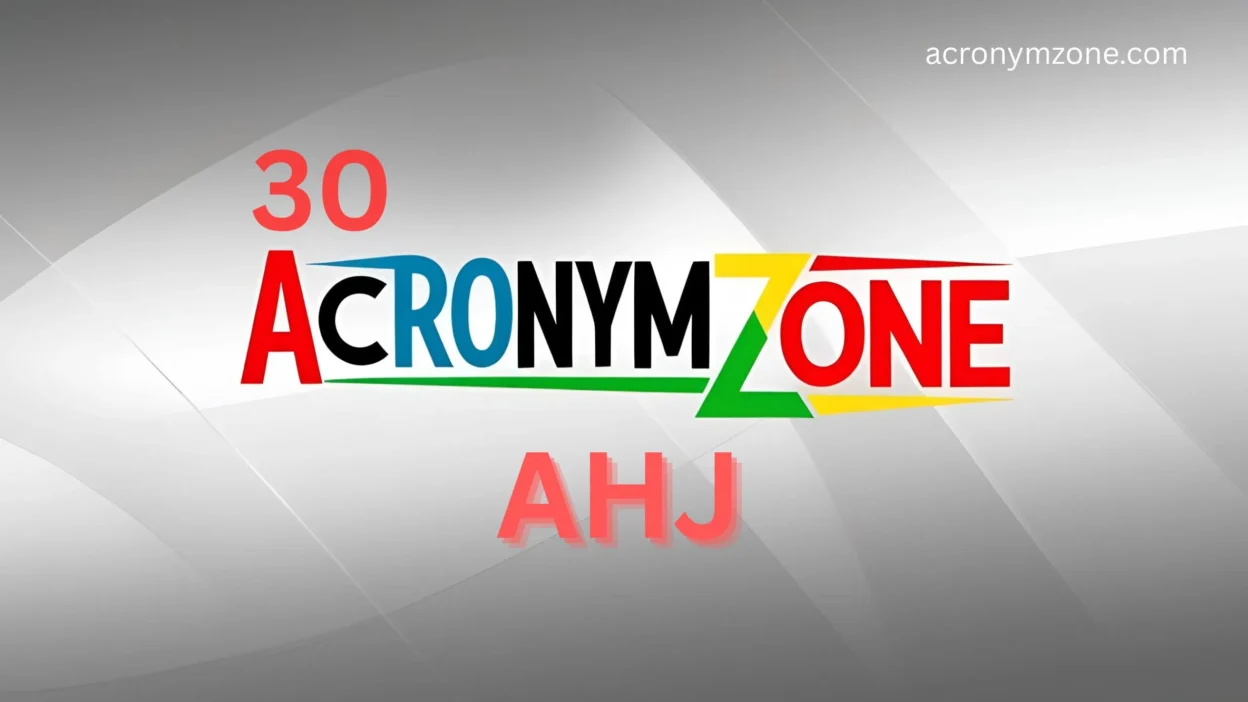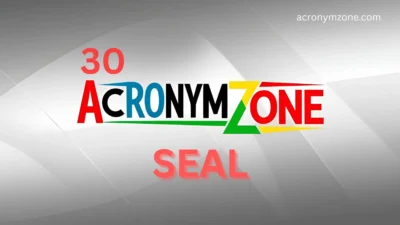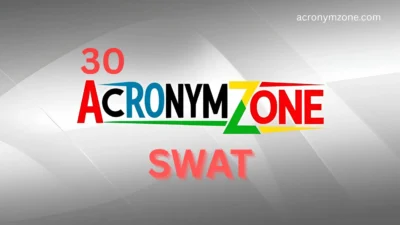The acronym AHJ may sound simple, but in professional and regulatory contexts, it carries a lot of weight.
It stands for Authority Having Jurisdiction—and it refers to the person or organization responsible for enforcing codes, standards, or safety rules.
Whether you’re working in construction, fire safety, healthcare, electrical systems, or even event planning, the AHJ has final say. But depending on your audience or message, you might want to say “AHJ” a different way—something clearer, friendlier, or more situation-specific.
This post gives you:
- A clear breakdown of what AHJ means
- 30 practical synonyms or alternatives, each with an example and when to use it
- Tips on picking the best term based on tone, audience, or field
🛠️ What Does AHJ (Authority Having Jurisdiction) Mean?
In simple terms, the AHJ is the person or body with the legal or regulatory authority to interpret and enforce rules.
For example:
- In construction, the AHJ might be the building inspector or city permitting office
- In fire safety, it could be the fire marshal
- In healthcare, it might be a state licensing agency or health department
Key Traits of AHJs:
- Decision-making power
- Code enforcement authority
- Legal backing or recognition
- Their identity varies by location, project, and industry
🔄 30 Alternatives to AHJ (and When to Use Them)
Here are alternative ways to refer to the AHJ, depending on the formality, clarity, and audience you’re targeting.
🏛️ Formal or Legal Alternatives
1. Regulatory Authority
Use for: Legal, policy, or government documents.
Example: Approval must come from the regulatory authority.
2. Governing Body
Use for: Agencies or boards with oversight.
Example: The governing body will review the permit.
3. Enforcement Agency
Use for: Health, safety, or compliance contexts.
Example: The enforcement agency cited code violations.
4. Code Official
Use for: Construction and building safety.
Example: The code official must sign off before occupancy.
5. Compliance Officer
Use for: Workplace, healthcare, or HR environments.
Example: The compliance officer issued a corrective action.
6. Oversight Authority
Use for: Broad formal use.
Example: This must be approved by the oversight authority.
🧱 Industry-Specific Substitutes
7. Fire Marshal
Use for: Fire codes or emergency planning.
Example: The fire marshal denied the event permit.
8. Building Inspector
Use for: Construction and renovations.
Example: The building inspector required new wiring.
9. Electrical Inspector
Use for: Electrical compliance and installation reviews.
Example: Call the electrical inspector before closing walls.
10. Permit Office
Use for: Local or city-level projects.
Example: Submit the blueprint to the permit office.
11. Zoning Board
Use for: Property use or land development.
Example: The zoning board must approve the request.
12. Health Department
Use for: Restaurants, clinics, or public spaces.
Example: The health department shut them down for violations.
🧑⚖️ People in Positions of Authority
13. Inspector
Use for: General, all-purpose usage.
Example: Wait for the inspector’s sign-off.
14. Official in Charge
Use for: Softened, approachable version.
Example: The official in charge needs to review this.
15. Code Enforcer
Use for: Safety and compliance-heavy settings.
Example: The code enforcer required an exit sign upgrade.
16. Licensing Officer
Use for: Regulated industries.
Example: Ask the licensing officer about the application process.
17. Safety Manager
Use for: Internal company compliance.
Example: The safety manager flagged the design as risky.
18. Project Reviewer
Use for: Design, architecture, or planning.
Example: The project reviewer highlighted accessibility concerns.
🧾 Casual or Layperson-Friendly Terms
19. Person in Charge
Use for: Talking to clients or the public.
Example: The person in charge gave the final go-ahead.
20. Approving Authority
Use for: Clear but still formal.
Example: The approving authority rejected the design.
21. Local Officials
Use for: Broad, flexible use.
Example: Local officials will evaluate the request.
22. Reviewing Agency
Use for: Government or third-party reviewers.
Example: The reviewing agency needs 10 days for approval.
23. Final Reviewer
Use for: Internal reviews and sign-offs.
Example: We’re waiting on the final reviewer’s comments.
🛡️ Abstract or Conceptual Variants
24. Decision-Maker
Use for: Emphasizing authority.
Example: The decision-maker overruled the plan.
25. Approver
Use for: Software, corporate, or HR workflows.
Example: The approver must finalize the change.
26. Governing Entity
Use for: Organizational bodies.
Example: The governing entity reviewed the proposal.
27. Credentialing Body
Use for: Medical or professional certification.
Example: The credentialing body sets these standards.
28. Third-Party Authority
Use for: Neutral, contract-based settings.
Example: A third-party authority will verify compliance.
🗣️ Dialogue-Friendly or Internal Use
29. The City
Use for: Local governments (informally).
Example: The city won’t allow that layout.
30. The Powers That Be
Use for: Informal or slightly humorous tone.
Example: Gotta wait for the powers that be to approve it.
✅ Choosing the Right Alternative
| Audience | Best Alternatives | Why It Works |
| Legal/technical | Regulatory Authority, Code Official, Oversight Authority | Professional and precise |
| Industry-specific | Fire Marshal, Health Department, Building Inspector | Field-specific clarity |
| Public/clients | Local Officials, Person in Charge, Final Reviewer | Easy to understand |
| Casual use | Approver, The City, Powers That Be | Relaxed, accessible language |
| Internal teams | Safety Manager, Compliance Officer, Reviewer | Collaborative and context-aware |
🌐 Cultural and Practical Considerations
- AHJ isn’t always a person—it can be an office, board, or even a software system.
- Using clear and familiar language helps avoid confusion, especially when dealing with non-experts.
- In high-stakes environments (healthcare, safety), use precise terms to prevent misinterpretation.
🏁 Final Thoughts: Make “AHJ” Accessible
While AHJ is a powerful acronym in professional circles, the right synonym can make your writing more inclusive, clear, and effective.
Use the term that best fits your tone, audience, and context—and your message will come through loud and clear.

William is a timeless and widely respected name often associated with leadership, intelligence, and integrity. Individuals named William are commonly known for their strong sense of responsibility, practical mindset, and ability to adapt across personal and professional environments. With roots in history and culture, the name William has been carried by kings, innovators, writers, and modern professionals alike, symbolizing reliability and influence.




